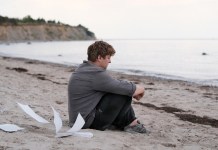As he nears retirement age everyone around Desmond O’Keeffe expects him to slow down, to relax in a deck chair with a slice of lemon drizzle cake and reflect on his life’s work. However the piano tuner from Camden Town plans on doing no such thing. When a teacher walks into his repair shop and suggests that her Himalayan school is too remote to receive delivery of a piano he accepts her unstated request and undertakes the biggest logistical challenge of his career.
He spent the following year training in Richmond Park and enlisting assistants from every corner of Camden, including conservationist Anna Ray and filmmaker Michal Sulima, to help him transport the piano — an upright Broadwood and Sons — from London to Lingshed, deep in the Zanskar mountains — at 14,000 feet above sea level it would be the highest piano delivery in history.
Following a brief introduction to the shop and its shopkeeper, as well as an induction into painstaking process of dismantling a 100-year-old piano, Sulima’s film joins the action in Leh, where Desmond and Anna are awaiting the arrival of the piano from New Delhi. Overseeing this initial stage is Harald Hagegard, a 21-year-old hospital porter from Sweden, who soon emerges from the jeep wearing a top hat, waistcoat and blonde hair down past his shoulders. It’s an unlikely scene even before the piano is unloaded, piece by piece, ready for the next leg of its journey: a 150 kilometer drive to Singela Pass followed by a ten kilometer trek over two days and incredibly difficult terrain. It doesn’t help that many of the local villagers who have agreed to help out have never seen a piano before, let alone carried one.
Having initially planned to load the frame and other larger components onto the backs of yaks, Desmond is forced to reconsider when confronted by the diminutive beasts of burden with which he has been provided. Instead, the vast bulk of the luggage and provisions will have to manhandled, a potentially perilous ask given the poor quality mountain paths ahead but one that the locals duly accept without question. Desmond, already exhausted, can only look on as the sherpas attempt to navigate the precarious track, ultimately resolving to slide the piano down the steep and unsteady shingle slopes rather than follow the slow and serpentine trail. Unexpectedly, Harald — the fittest of the troupe thanks to his experience skiing in Sweden — proves essential to the endeavour’s success, both in helping to carry the piano with the requisite care and in motivating the volunteers with charismatic, if incongruous, viking chants.
The whole endeavour is delightfully, disarmingly surreal, something that doesn’t change once Lingshed finally looms into view. At the school awaits a trained concert pianist from Germany, quite by coincidence, who arrived just one week before the village’s very first piano. You might expect such chance encounters and happy accidents in Camden Market, but in the shadow of Zanskar — so isolated that it’s thought to be the last remaining Buddhist enclave in the world? It’s almost enough to make you believe in karma. One of the most striking scenes in Piano to Zanskar has little to do with pianos at all, but sees Anna singing snippets of Amazing Grace to the assembled school children, pausing between lines to allow the children to echo the lyrics back to her. It’s a spine-tingling prelude to the main event: the piano concert. If Desmond can put the broken pieces back together, that is.
As amazing as Desmond’s achievement is, however, Piano to Zanskar doesn’t quite do it justice. It doesn’t feel like the whole story, omitting most of the journey, distance-wise at least, and largely ignoring the villagers who do most of the hard work once they arrive in the Indian Himalayas. What’s more, many of the questions that the documentary raises — pertaining to globalisation, for instance; specifically how a place can be modernised without becoming homogenised — go frustratingly unanswered. It’s clear that Desmond hasn’t finished with Lingshed, returning yearly to tune the piano and initiating a recycling initiative, so it’s disappointing when the film comes to an abrupt, seemingly premature end. Lingshed might now have a piano, but now what?









